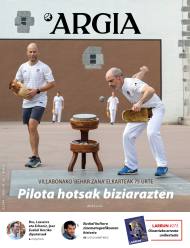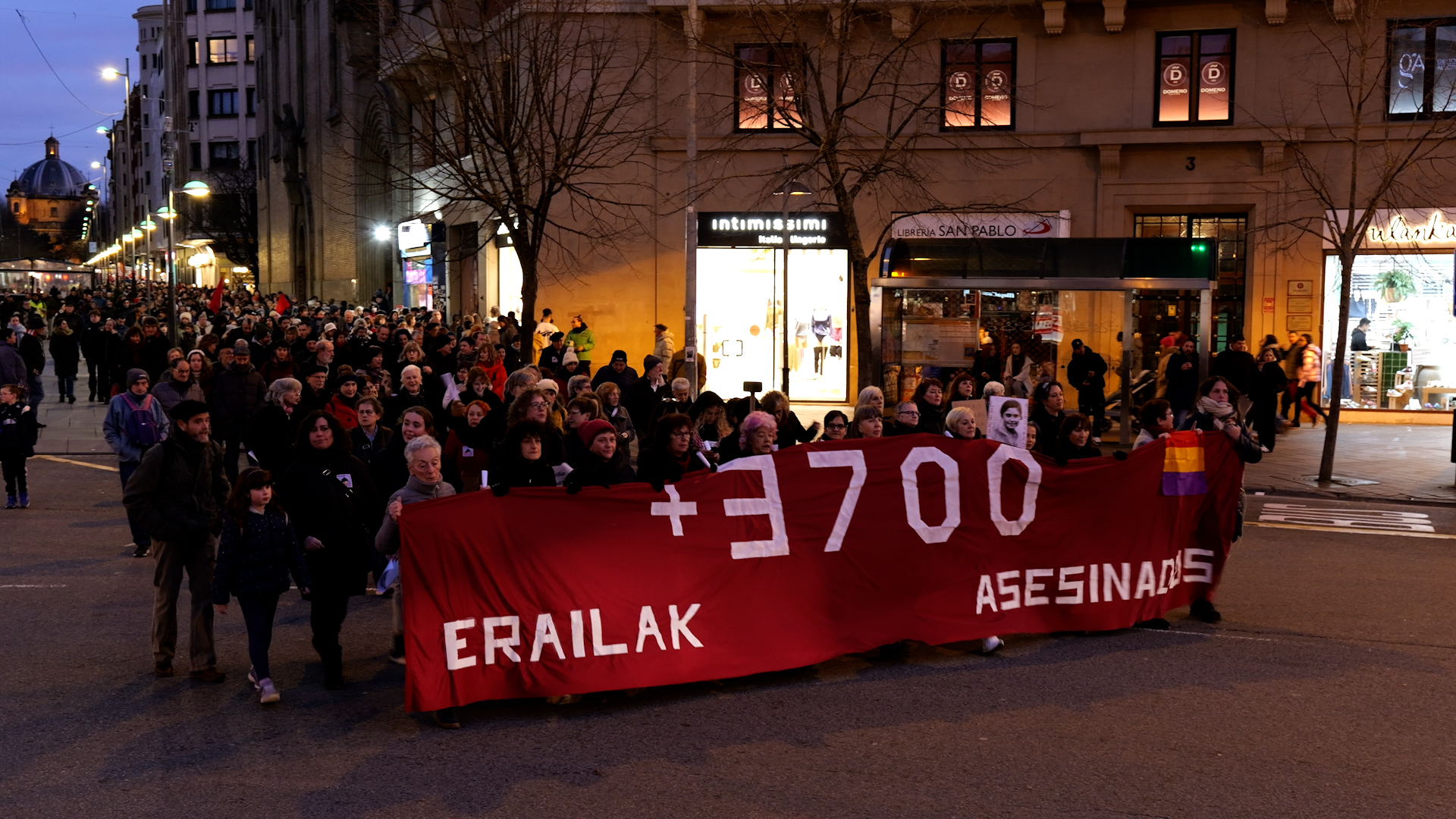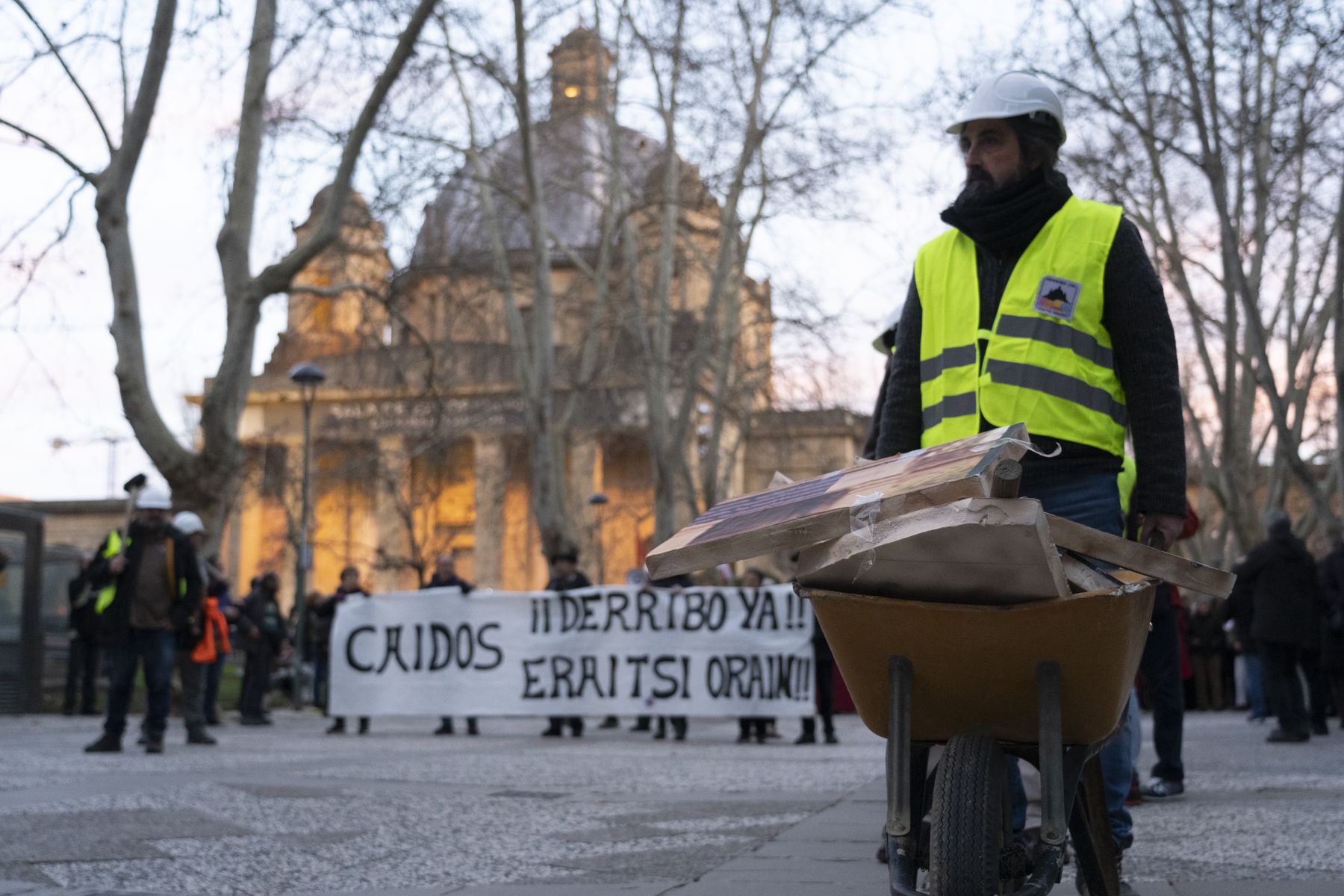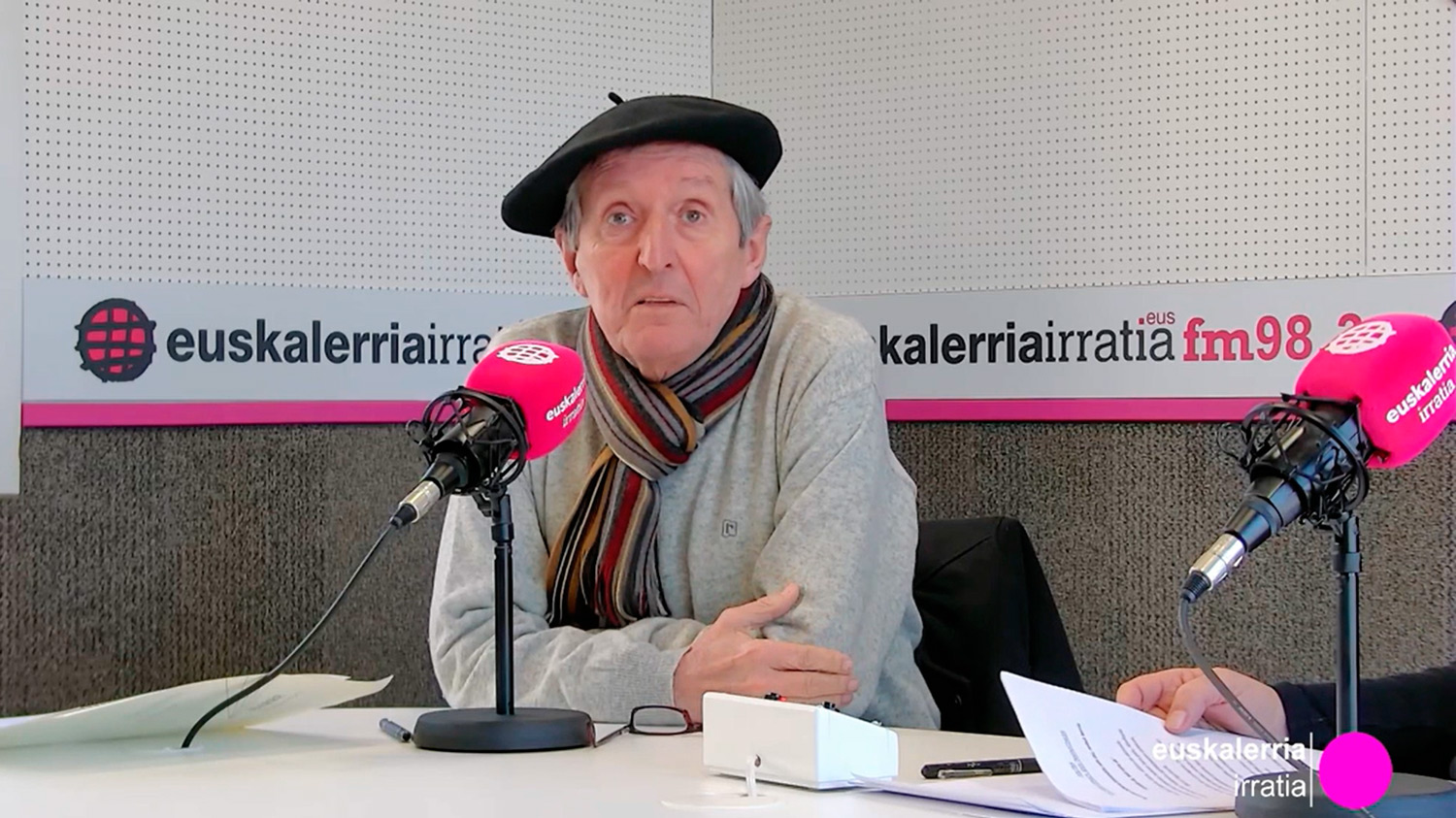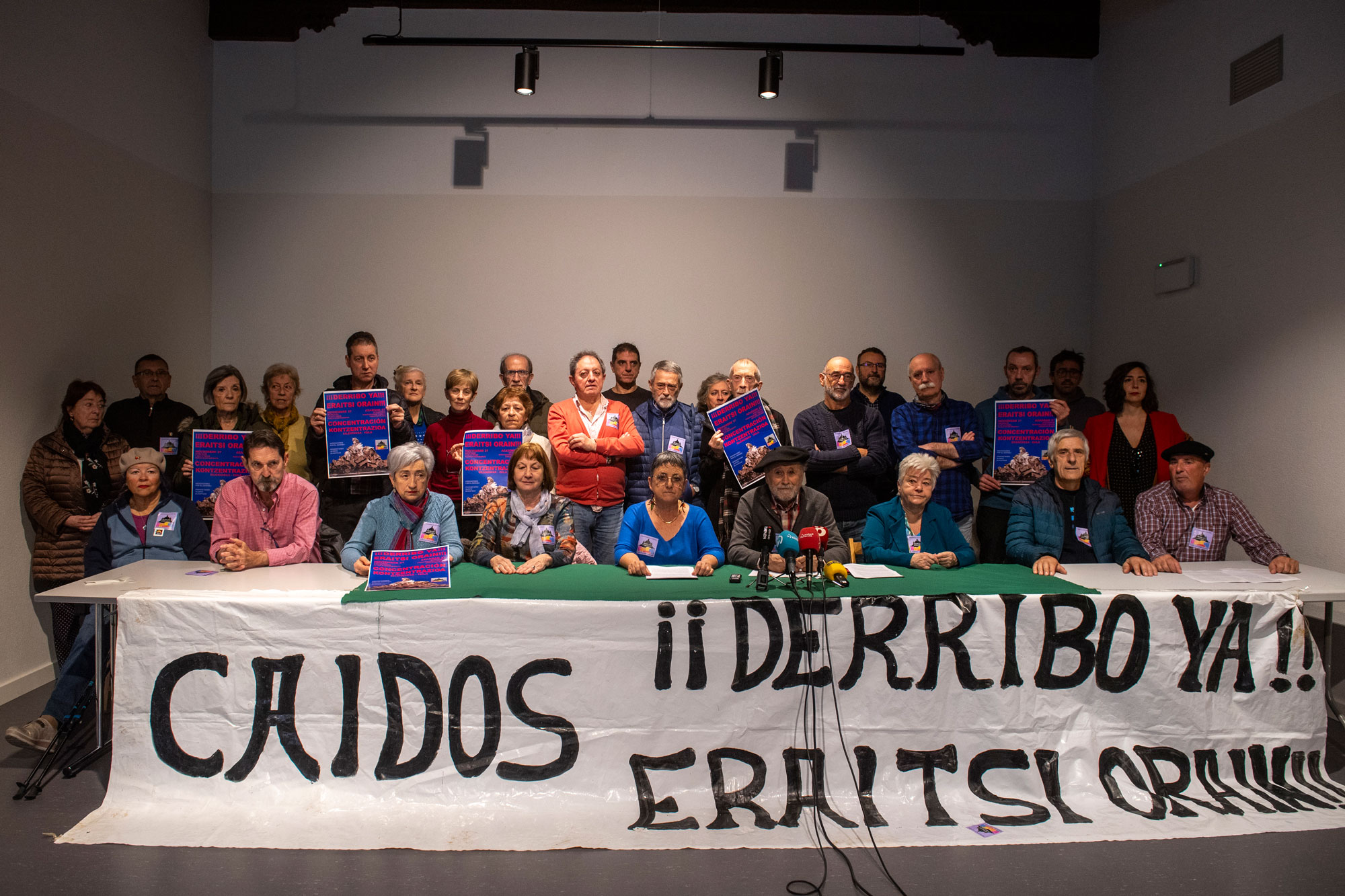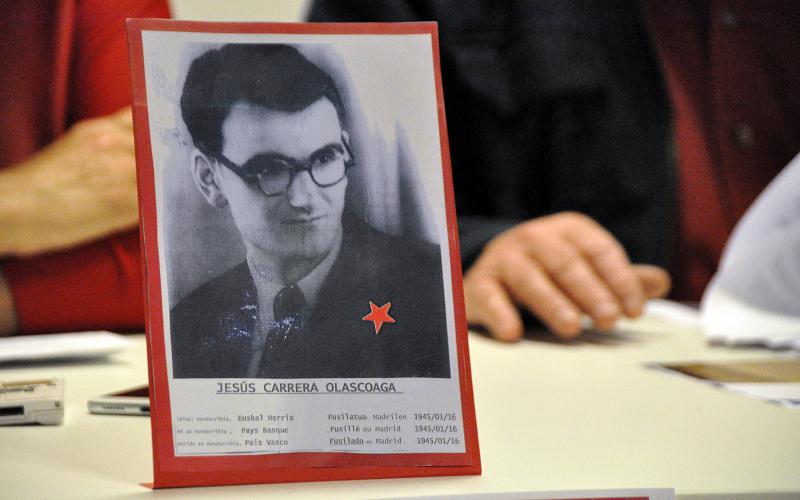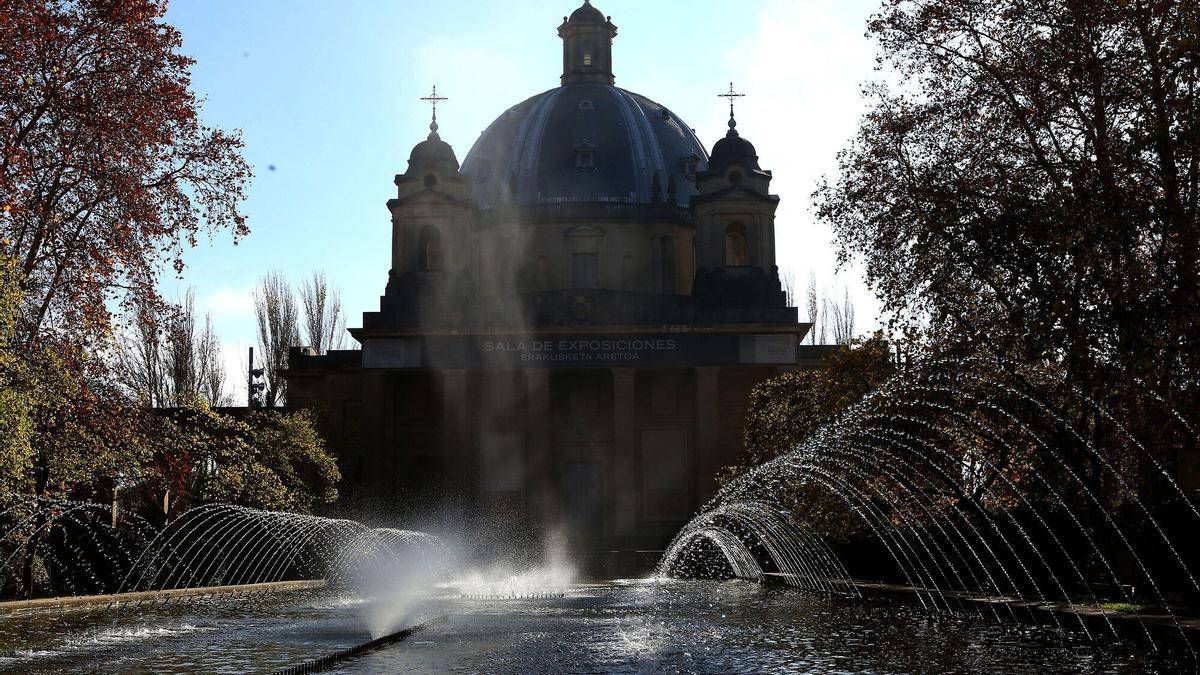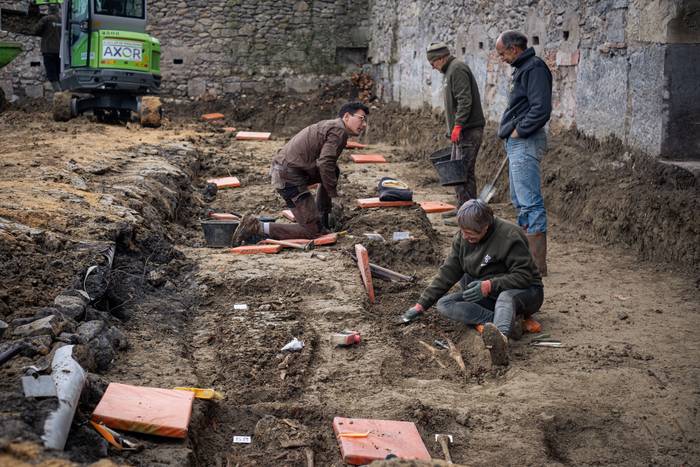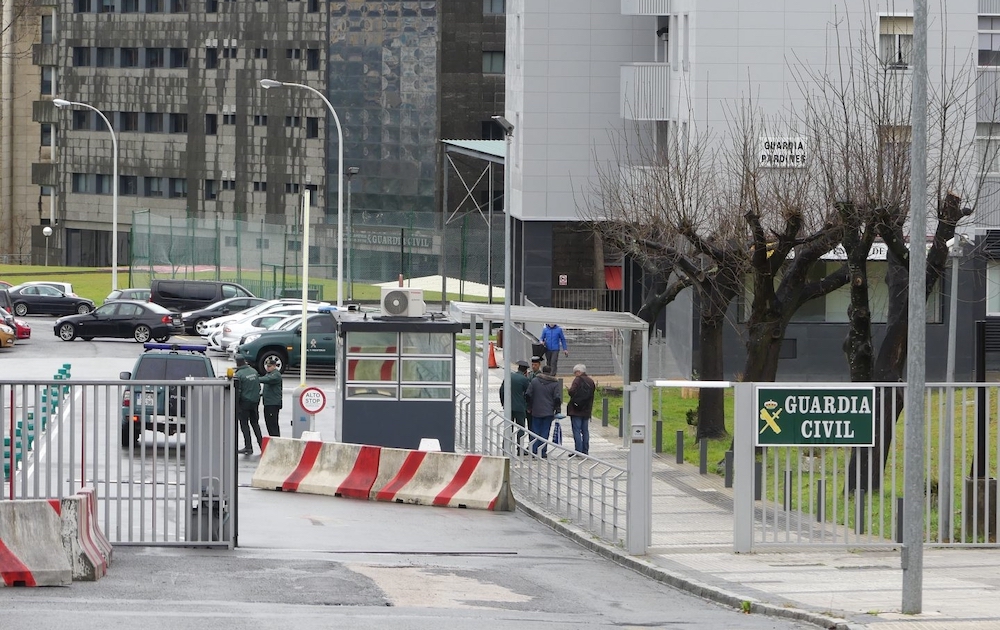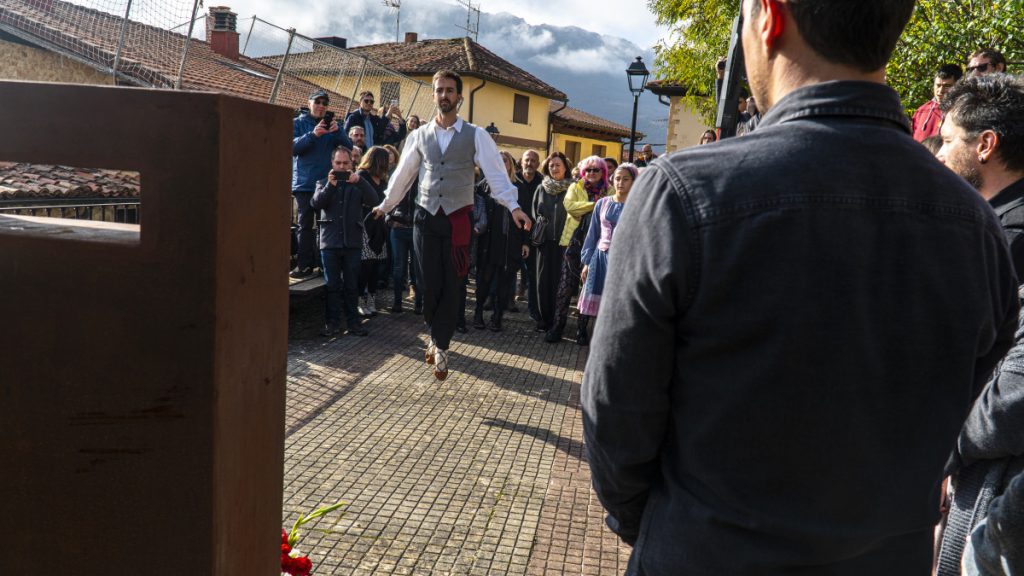"The truth and Basque culture have guided my help"
- In Artea, final of the Xilaba championship, champion Amets Arzalluz. Andoni Iturrioz, player fier of bertsolaris and collaborators. But Antonio's road is marked by his father, Manuel Iturrioz. As we have read in the book The Experiences of a Wrestler (Alberdania, 2011).

Goizuetakoa zuen ama, Asun, eta Orexakoa aita, Manuel. Parisen hazi zituzten hiru seme-alabak; Andoni haietan bigarrena dugu, Frantzian hainbat enpresa ezagunetan ardura handiko lanak egina. Hortxe dira, adibidez, Olivetti, Philips, CGE (Elektrizitate Konpainia Nagusia)… Lan-harremanak ukan ditu Georges Besse —Renaulteko presidente, 1986an Action Directek Parisko erdigunean hila—, eta Edouard Balladurrekin. Hala ere, izokinarena egin zuen, aukera izan zuelarik, eta Euskal Herrira itzuli. Gure ekonomiari eta kulturari sostengu eman die, eskuzabal, merezimendurik edo aitortzarik jasotzea espero gabe, gisako laguntasunak jasotzera ohituta bageunde bezala...Goizuetakoa zuen ama, Asun, eta Orexakoa aita, Manuel. Parisen hazi zituzten hiru seme-alabak; Andoni haietan bigarrena dugu, Frantzian hainbat enpresa ezagunetan ardura handiko lanak egina. Hortxe dira, adibidez, Olivetti, Philips, CGE (Elektrizitate Konpainia Nagusia)… Lan-harremanak ukan ditu Georges Besse —Renaulteko presidente, 1986an Action Directek Parisko erdigunean hila—, eta Edouard Balladurrekin. Hala ere, izokinarena egin zuen, aukera izan zuelarik, eta Euskal Herrira itzuli. Gure ekonomiari eta kulturari sostengu eman die, eskuzabal, merezimendurik edo aitortzarik jasotzea espero gabe, gisako laguntasunak jasotzera ohituta bageunde bezala...
There are also two stories. One is yours, ours. The other, your father's. What is the principal of both?
Father's real story! I remember living in London, and my sister also lived there. Every year we rented Arretxea from Sara for the summer. There we spent two months, all of them: our parents, us and our ttip as well. I always saw my father writing, I was 80 years old. “What are you doing, Dad?” she asked. “Time goes by, boy!” Nothing else. We had a nice relationship with my father, but also with respect. Thus, when my father died, a cousin came to me, Joseph [Iturrioz], saying: “Your father gave me some notebooks to play machine. I have not had time until now, but they are facts. For you!” And he gave them to me.
Dad's notebooks -- I
think my father would write first on a few pages like this, and then he would go to coffee. And he also completed two meats! Read my father's writings and tell in Spanish, and all the dialogues in Basque! I started reading, but I couldn't, I couldn't. It gave me heartache! But my wife could read. He doesn't know Euskera, but he does quite well in Spanish. She picked them up and started reading… I remember, both of them in bed, and asking her wife, when she came to the conversation in Basque: “What does this mean?” And I would come back. And he once said to me, “It’s very interesting!”
He says that heart pain did not allow you to
read… No… When I lived, my father told nothing. Sometimes she said something, but fite heard it. And then the pleas, which my cousin gave me! My father learned to write and read at the age of 22 and to speak in Spanish, in Zumarraga, because he was raised in a hotel. I picked up the pleadings and started working on what my father wrote with several historians and some Hernani girls who wanted to make a film about the Comet network. I spent four years in the research, if my father's mistakes were correct. I already say that my father was 80 when he wrote the pleadings, everything was talking about memory, but I can say the writings are correct, except for some sort of confusion.
You didn’t tell them, but you wrote yes, you
wrote… But not all! An example now. At seven months, I felt some dysentery. The doctor said: “This boy is dead!” We were in the Arizluzieta farmhouse in Oiartzun. My aunt stayed with me all night in the room with a big candle and realized I was alive in the morning. They called the doctor again and said: “If you want to keep the child alive, you must give the milk of your wife or the donkey!” If they had a donkey in the farmhouse, but if it was heavy, it had no milk! My mother had a wife friend in Oiartzun, who breastfed me. So I saved myself! My father doesn't tell that!
You know your father didn't tell.
Listening to my mother and my uncles! His father was on the Comet network. He always walked from one side to the other of the border and once came to Arizluzieta. It was winter. Nevaba. While they had dinner, in the middle of dinner, the father rose up. “I have to leave!” And mothers: “But Manuel, you’ve gone crazy! ? What now!” “No, no, I have to leave!”, Dad. And in the quarter hour of my father's day, the whole house surrounded by civil guards. Nor does my father tell me that in his papers! I know by counting my mother and aunt! I'm sorry today, because I can't ask my father any more questions.
"My father said: ‘I was waiting in that bar to kill dirty Melito’. I was a surprise! “What did Meliton do to you?”
Reading the papers, what did he give him the most?
That's what he didn't tell us in life!
Ha ha ha… And that's what you tell it about?
It didn't stop. Comet was on the net, clandestine, one in Goizueta and one in Tarbes (Occitania) until the Germans entered the arms factory. One is in the concentration camp of Argeles sur-Mer, another in the hospital La Rosaire de Bidado, in Donoztegi, in San Juan de Luz… It didn’t stop and escaped all the sites! On the one hand, it did not stop, and on the other, it was a matter of few words. I didn't speak much, but I would say: “There are no heroes or others, it’s the need!” It grew in short pasture, in Orexa, hard, and was affected by need.
Meliton Manzanas told her father his father's tortures to his cousin José and Jexus Iturrioz: “When I entered Ziega I swore, if I managed to leave there, that Apples was going to be killed at
any price.” He said, yes, and he told me something else about Apples. The father returned “officially” south in 1977. He met in Hernani with former friends to eat. Some were Miceletes, others were friends of the Hernani war. Because my father didn't drive, I took him in the car and on the desk I picked him up again. I remember telling me two things. He'll have drunk a little and maybe released. One, he said: “There I was waiting to kill Meliton dirty.” I was a surprise! “What did Meliton do to you?” And father: “They are old accounts!” And he said nothing else. Then we went through the Bidasoa and in Irun, at the height of the old station of San Miguel, he said: “That’s where we were going!” And I: “What are you doing? and father: “They are old accounts!” And nothing else!
.jpg)
What you were talking about if you had not left the papers.
That's it. For his part, his father did not write that he felt it, but what he did. He made no conclusions, he didn't love the message. “You have to learn,” he said, did not lecture, but he said things correctly and calmed. “Kid, even if he does things right or wrong, he always has to get better!” Like not.
It was founded in 1945, the year in which the Second World War ended, in the Arizluzieta village of Oiartzun.
And at 11 months, they brought me to this North. I know that in 1946 my father wanted to go with the Americans to follow the war against Franco, like the battalion Gernika and Lezo [Urruztieta]. They believed that the war was also going to happen to Spain, but we know that the Americans refused. So when I was four years old, my father was occupying the whole family, our mother and us two older brothers, and to Paris. I remember from the tip we went to the Basque Country to celebrate the Aberri Eguna. There I met the lehendakari José Antonio Agirre and the warriors of the Gernika battalion.
But how did they come to
Paris?With the delicate Second World War, and apart from the wars against Franco, his father thought he should take his family forward. Besides, I was born then. First, his father stayed in San Juan de Luz and learned to do spartinas with a Peña. That rock had a partner, Sotes, who was splinting in Ambert (France), and had three children in San Sebastian, 14 to 17 years old. And they made a deal. Sotes asked his father to bring his three children to the North, in exchange for allowing our father to make spartins.
And did the father start doing spartins in San Juan de Luz?
No, he took the permit and mounted the atelier in Puy-de-Dom (France). He got a contract with Michelin, as the workers used the spartins and gave them free workshops. The workers are not paid, but with the spartins! Ha, ha… Sotes realized that my father was doing a nice business and took away his permission. I told that to my mother and aunt, not my father. So we all went to Paris and we made life.
You say you were four years old when you went to Paris...
Yes. We were already three brothers, my sister Ambert, and my parents. At home, it was all Basque, and when I started school at age five, I didn't know French. But children learn Fite languages, and I also learned French easily. My mother also wanted to learn French and asked us something in French, but us. He learned without us. His father was older and did not study so much French. The life of our house in Paris was in Basque.
At home in Basque, at school in French, on the street as well, abroad and in teenagers... Did you keep the Basque? When I
was 12-13, I realized I was losing the facility. We got a magazine, Euzko Deya, and I started reading them and learning by heart. “Euzkadi our favorite vegetable garden, the Basque flower / Wanting to kill the beloved flower, the enemies are vague / Let this kill not come / at all to Basque Country!” They are! Ha, ha… Or stories: “Where is the kid going?… Down there!… And where does it come from? Up there!” Ha, ha… Things like that! My brother was talking to me in Euskera, what's more, we were touching each other, because my father was touching us, and we learned a little, at least. The little sister was embarrassed talking in Basque. He was not ashamed of being Basque, but of being an immigrant.
That too… I remember that at school
they called us “Sale Frightening.” That is the Spanish punishment, but what is wrong. They called us “dirty Spanish.” “I am Spanish and what!” he told them, but I felt nothing Spanish. I didn't even know Spanish, but that's what they were talking to us, me against, and my brother too. So I resurrected my Basque and learned some new words in Basque. And on the other hand, the people of Zuberoa met them in Paris. They wanted to set up a theater, yes or no, by Daniel Landart. “No! They will crush me! My father gives me surprises with his skin tape...” My Basque was raised and I started listening to others, and in Paris there was everything!
.jpg)
"I remember in school they called us "Terrifying Sale." That is the Spanish punishment, but what is wrong. They called us “dirty Spanish.” “I am Spanish and what!” he said, but I felt nothing Spanish.”
He talks about the Sulatins in Paris. Did you meet at Txomin Peill, or Jon Mirande? At
Txomin Peille, yes, she taught me Basque. But he was a passionate linguist, he didn't teach us Basque, he analyzed language! “This has come from there… This from Latin… I don’t know where...” However, it was interesting. I didn't know Jon Mirande, but [Txomin] Peillen always mentioned it. Jon Mirande wanted it!
You were also as your father “company to company” throughout the time, as reported to Subai Colina (ARGIA, September 8, 2013). He took her back and came to Senpere…
I wanted, like salmon, to return to Basque Country! But before the toilet was here, we bought a piece of land from my brother and built the house Larralde-berria. The wife was content studying her two children. On Monday morning I picked up the plane and walked around the world. I came back on Friday afternoon and had the whole weekend off with my family. So I've lived. Then I tried to help both the Herrikoa, Loreki, Alki [Cooperatives, with the objective of the social and solidarity economy], the young people of Orexa, where I was my father, and the projects that I have been able to.
Also advancing the Larraldea cultural centre, for example. What has pushed you to help others or to foster a Larraldea?
Truth and Basque culture have guided my help. The thrust must stand the truth. I want the Jews, what they say: “Always tell the truth. So you will sleep well and the others will not.” Ha, ha… We grew up in short pasture, we don’t have much need, if we have enough! We live well, don't believe! We were able to renovate Larraldea, to have a new house, what do you need? Like three times a day!...
* * * * * * *
Aunt Claudia “Comet is the name given from France, because she had no name in the war, and the aunt was the “Comet” network,
a network that helped the allied pilots to move from France to Spain. These kinds of networks were limitless and worked with each other. Comet has covered the names of humble people. Aunt Klaudia [Eskuero Aranburu] was also there, spent nine months in the shadow.”
“A few
hours later I received a visit that I wouldn’t forget my whole life. Meliton Manzanas was a cop with a child's face. He ordered the guards to strip me away and put burgundy. On the ground they opened a gravel of sharp edge and there they made me kneel. The gravel immediately put my heads. The guards brought me back to my knees and Manzanas attacked me screaming and kicking. From time to time I fell and Manzanas stepped on to tear the graven...” (Manuel Iturrioz). The experiences of a wrestler."
The last word is
Mecenazgos There are Mecenazgos, and they're more than anyone believes in our environment. Some of them come from the hands of foundations. Others, from large and small businesses or individuals. A strong tax deduction and incentive is applied to all of them. Andoni Iturrioz, for his part, is sincere and cultural.
Tafallan, nekazal giroko etxe batean sortu zen 1951. urtean. “Neolitikoan bezala bizi ginen, animaliez eta soroez inguratuta”. Nerabe zelarik, 'Luzuriaga’ lantegian hasi zen lanean. Bertan, hogei urtez aritu zen. Lantegian ekintzaile sindikala izan zen;... [+]
Eraispenaren aldeko elkarteek manifestazioa antolatu dute larunbatean Iruñean. Irrintzi Plazan manifestazioaren deitzailea den Koldo Amatriarekin hitz egin dugu.









